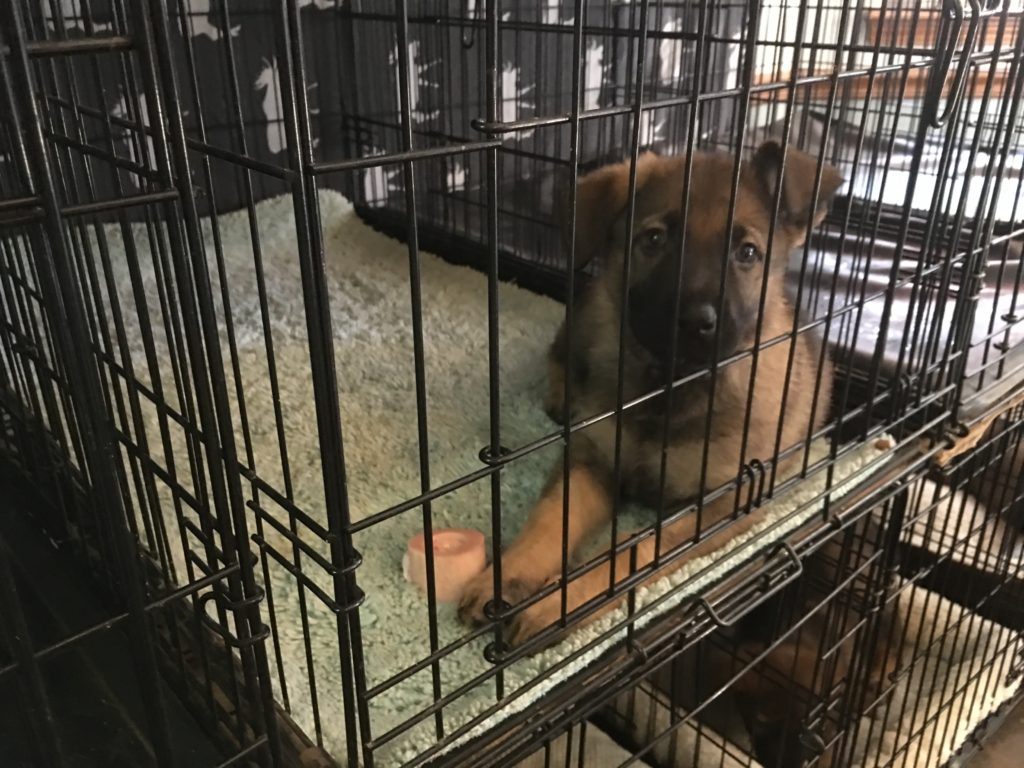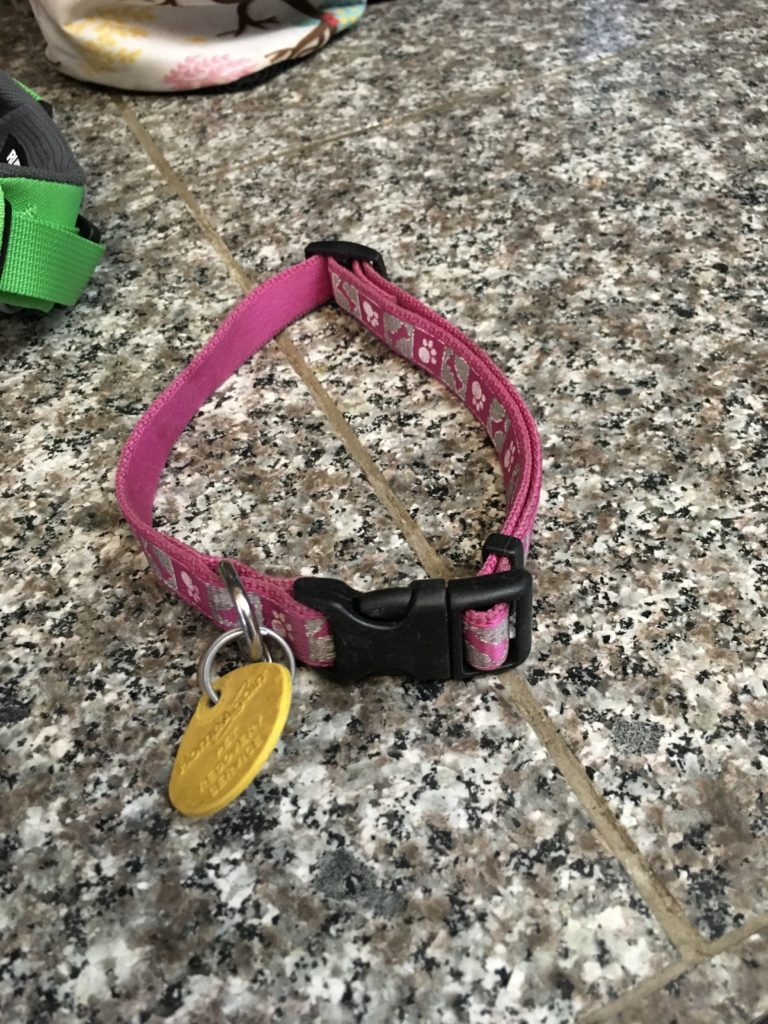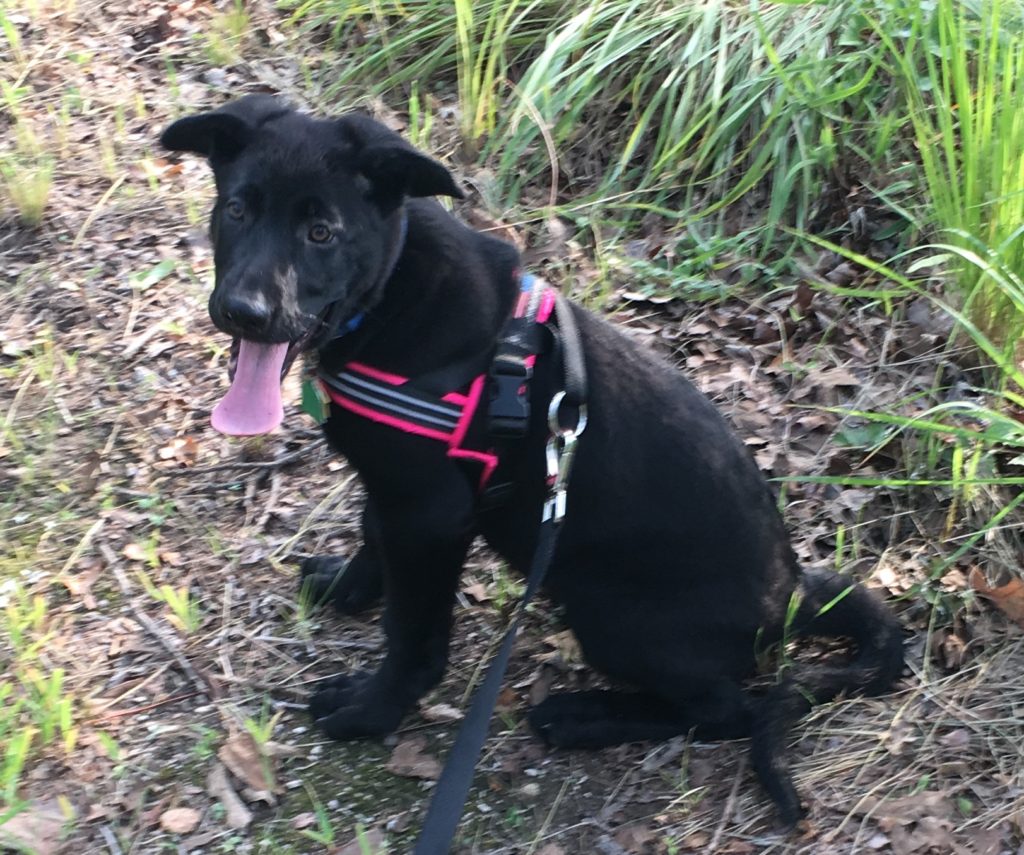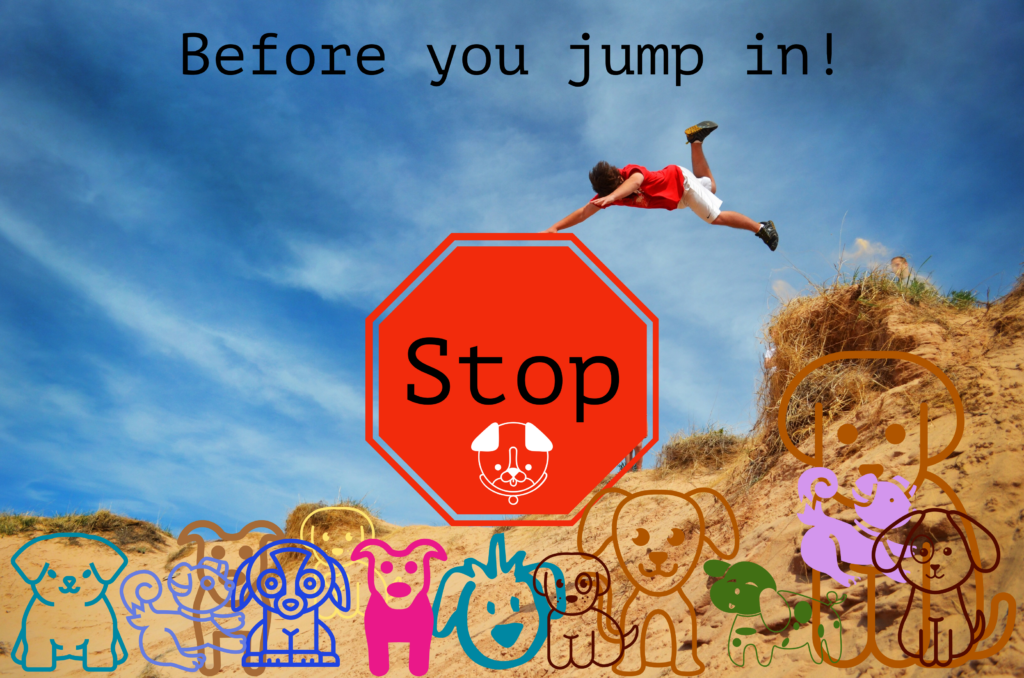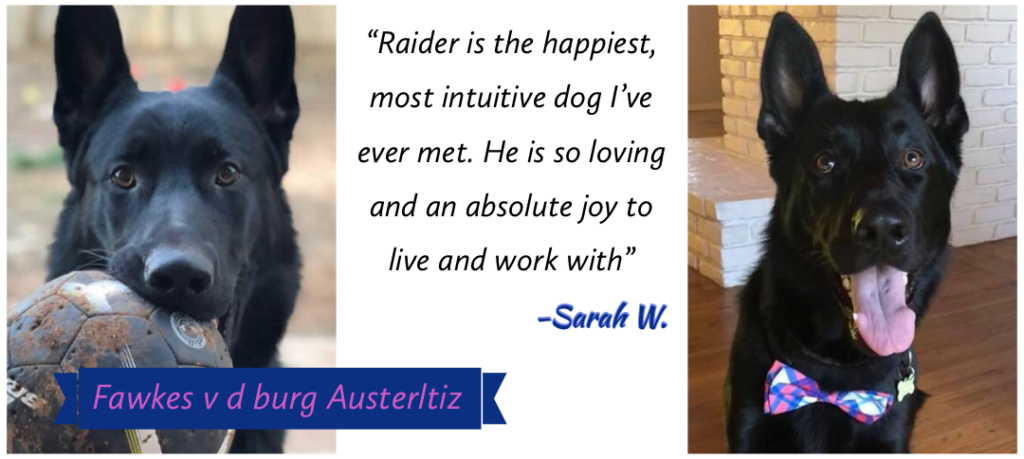Welcome Home Puppy!
10 tips to help your new puppy settle in to your home without the drama.
So, you are bringing your new puppy home soon, or maybe your new puppy is already trundling around your feet at this very moment! Congratulations on the newest addition to your home, the next week is going to be a roller coaster of puppy and human emotions, so buckle up, keep your hands and feet inside the car, and prepare for the ride!
While ups and downs are normal and expected you have some control over these highs and lows, even the ability to level things out for you and your puppy. With just a few tips you can by pass the roller coaster and take a scenic drive instead.
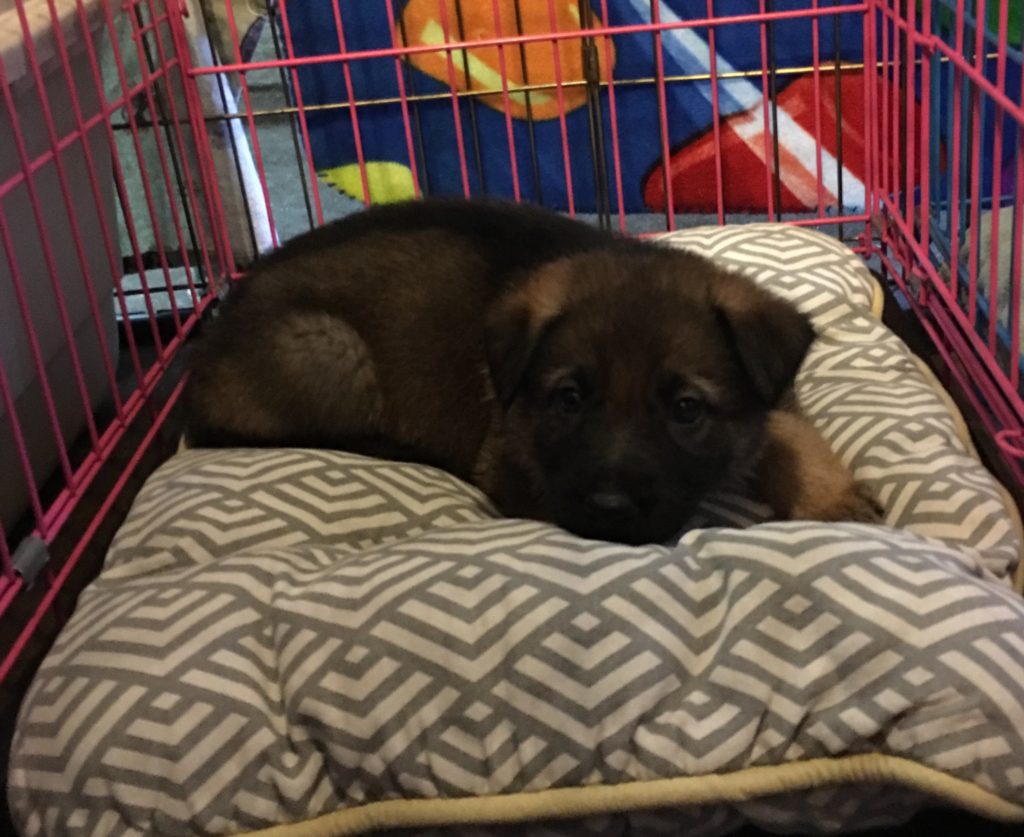
Tip 1: Plan beforehand. Before you bring your puppy home sit down with all family members and discuss the training, management, feeding, schedules, rules, and all the other minutia involved in a new puppy. Write things down, make lists!
Tip 2: Purchase and collect supplies. Puppies need a LOT of stuff, just like babies do, it’s really difficult to manage a puppy without the needed supplies so source these items before your puppy’s arrival date.
Tip 3: Talk to your breeder about how they have prepared the puppy for transitions. Be sure to ask the breeder how you might leverage this work into a smooth transition week. You can review our Easy Transition series for ideas!
Tip 4: Prepare your management plan and set up all areas. Puppies need a variety of types of management. Baby gates and playpens can keep a puppy in the same room as caregivers. Closed doors keep puppies out of places they should not be or cannot be supervised. Start teaching children (and some adults) to keep stuff up, and to put stuff away, before the puppy comes home. If toys litter your living space now, they will once the puppy arrives and this will mean extra work for parents and conflict in the family. Make keeping possessions put away when not in use a priority.
Tip 5: Keep things quiet and low key upon arrival and for the first week.
Your new puppy will be under a great deal of stress, and even distress, due to the change in location, loss of known humans and their canine family, and the new humans and pets already in the home. Don’t make this stress into distress by “throwing everything” at your puppy at once. Using management and this awesome Dog and Puppy Survival Guide carefully and gradually introduce your new puppy to your other dogs. Use this Pandemic Puppy Podcast episode to help you make the first week a happy one.
Tip 6: Use confinement to your advantage. Crate training and confinement training is where things can really go wrong fast. Use a program like our own Crate School to help you navigate this training in a positive and productive way.
Tip 7: Use a solid house training plan from day 1. When everyone in the house is on the same page with house training things go better for everyone. Pick a plan, such as our Poop School, and stick with it. Be sure the plan you choose does not involve depriving the puppy of freedom to move, excessive confinement, or restricted access to water.
Tip 8: Prepare Children: Children (and adults!) often have unrealistic expectations about what having a puppy is like. Prepare children for the puppy by reading to, or with, them some good books about living with dogs. Visit the Family Paws website a vast array of resources and help on this subject.
Tip 9 Connect with other puppy parents! There is a great sense of support in a community with those also raising puppies. Take advantage of our FB group devoted just to puppy raising. You can find free resources in the guides, everything from detailed house training plans, to webinars on socialization and biting/mouthing. Curated by a group of professional trainers and puppy raising experts, this group is a great place to get real time answers to the abundance of questions that come up when raising puppies, or just getting support.
Tip 10: Keep that puppy close. Puppies who have just moved to a new home will easily experience separation distress, so stick close to your puppy at first. Sleep the puppy in a small crate right on the bed with you, set up their playpen very near where you work so the puppy can see you. You can even sit right by the pen and work on a laptop, to help soothe a sleepy, but distressed, puppy. Then using a plan such as Crate School you can gradually get the puppy used to you being further and further away as the puppy settles in and moves past the stress of transition week.
In closing, remember, that puppies grow into dogs fast, and dogs don’t live very long compared to humans. So cherish every moment of your puppy’s early life, in a moment those days will be gone. Have realistic expectations, take lots of photos, get support and good advice, and ENJOY your puppy!

